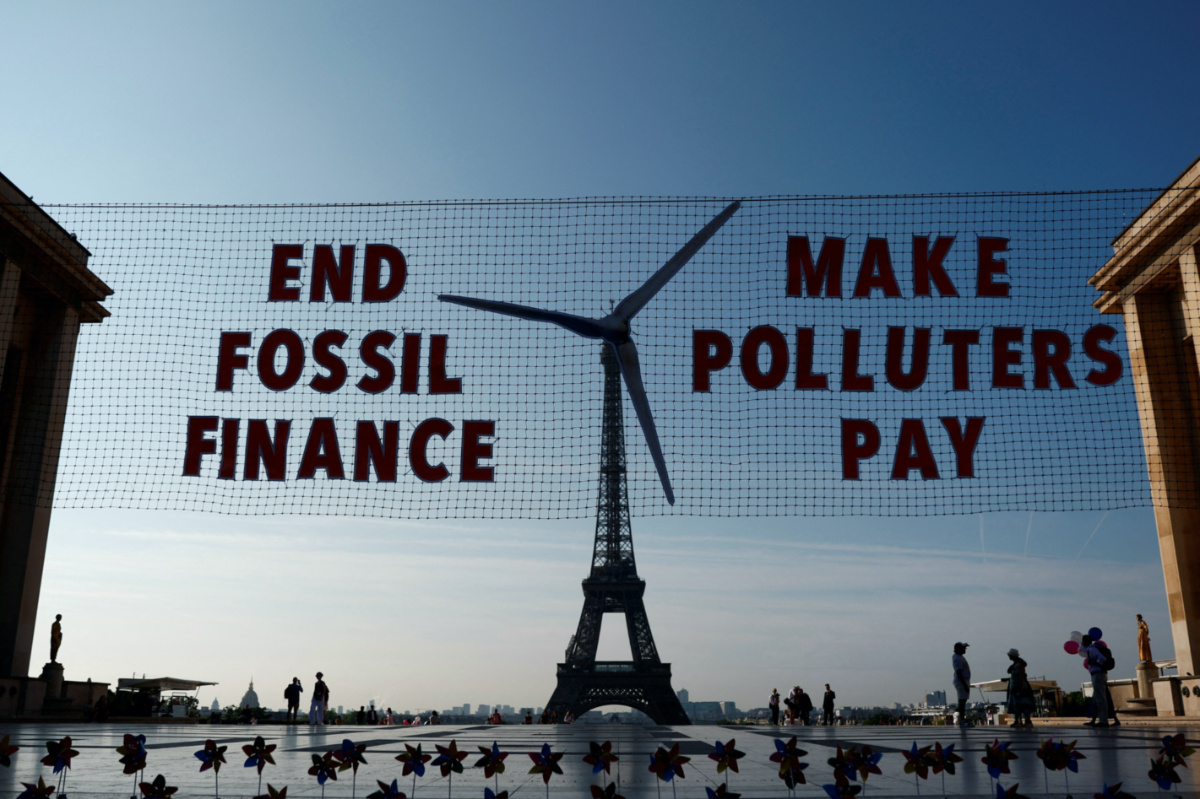Singapore
Reuters
The world is heading towards a series of environmental “tipping points” that could cause irreversible damage to water supplies and other life-sustaining systems, the research arm of the United Nations warned on Wednesday.
Climate change and the overuse of resources have put the world on the brink of six interconnected tipping points that “could trigger abrupt changes in our life-sustaining systems and shake the foundation of societies,” the UN University’s Institute for Environment and Human Security (UNU-EHS) said.

Activists with Glasgow Actions Team and 350.org hold a floating “invisible banner” that will appear to transform the Eiffel Tower into a wind turbine to welcome world leaders on the eve of the Summit for a New Global Financial Pact, at the Trocadero Square in Paris, France, on 21st June, 2023. The slogan reads “End Fossil Finance” and “Make Polluters Pay”. PICTURE: Reuters/Gonzalo Fuentes/File photo
“Once these thresholds are passed, the system fails to function as it normally would, and you get new risks cascading out, and these new risks can transfer to other systems,” said UNU-EHS researcher Jack O’Connor, lead author of the report.
“We should be expecting these things to happen because in certain areas they are happening already.”
The Interconnected Disaster Risks report, published ahead of COP28 climate talks next month, identified accelerating rates of extinction, groundwater depletion, glacial melt and extreme heat as the major interconnected threats.
It warned that one million plants and animals could be wiped out “within decades”, with the loss of key species to “trigger cascading extinctions of dependent species” and raise the likelihood of ecosystem collapse.
Many of the world’s biggest aquifers are already depleting faster than they can be replenished, with Saudi Arabia, India and the United States already facing grave risks. Run-offs from glacial melt are also set to decline.
“Heat is causing us to extract more of that groundwater because of drought,” said Caitlyn Eberle, another lead author. “Many of those glaciers in the Rocky Mountains, the Himalayas and the Andes feed into these rivers and groundwater systems, so as those glaciers disappear there is less water available.”
The researchers also warned of the growing risks posed by space debris, with collisions set to render the earth’s orbit “unusable” and make future space activity – including satellite monitoring of environmental threats – impossible.
In another tipping point, worsening climate hazards are now making insurance unaffordable, with half a million homes in Australia alone set to be uninsurable by 2030, they said.
“Once this point is passed, people are left without an economic safety net when disasters strike,” the report said.






